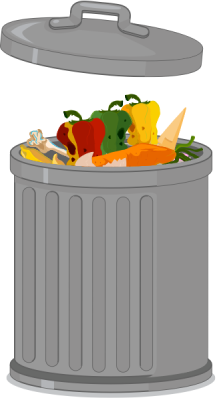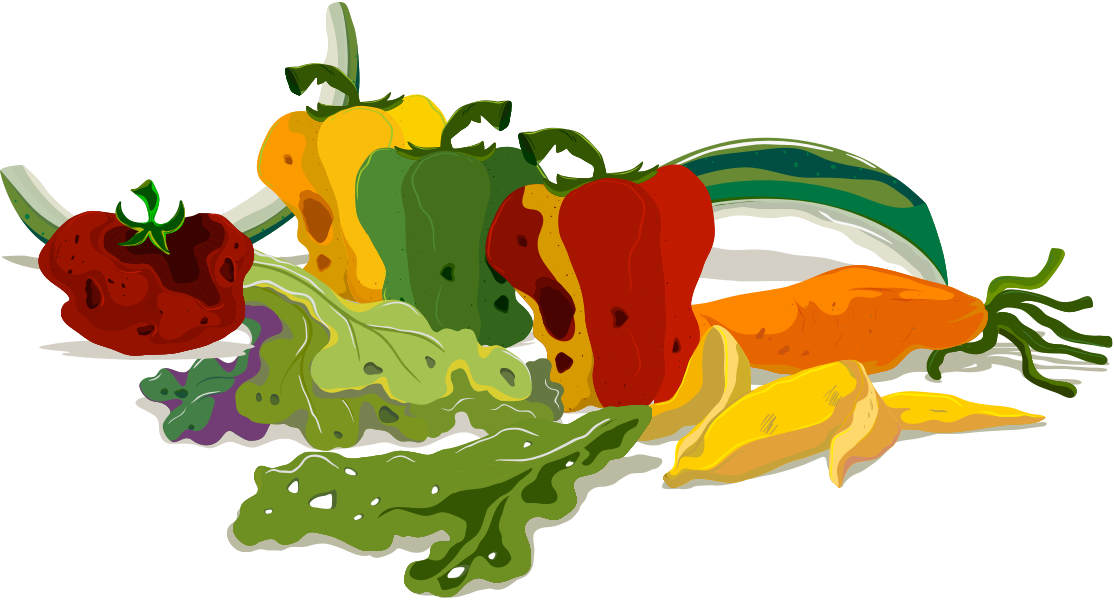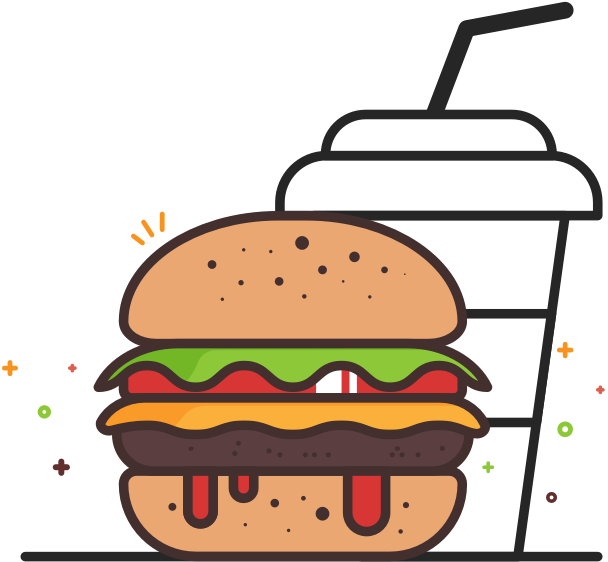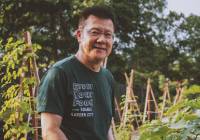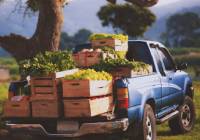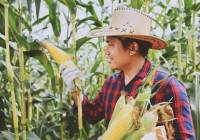Changing food habits amid Covid-19
BY HANNAH BOCK AND ADITI BHARADE, FIRST PUBLISHED IN THE STRAITS TIMES, 31 MAY 2020
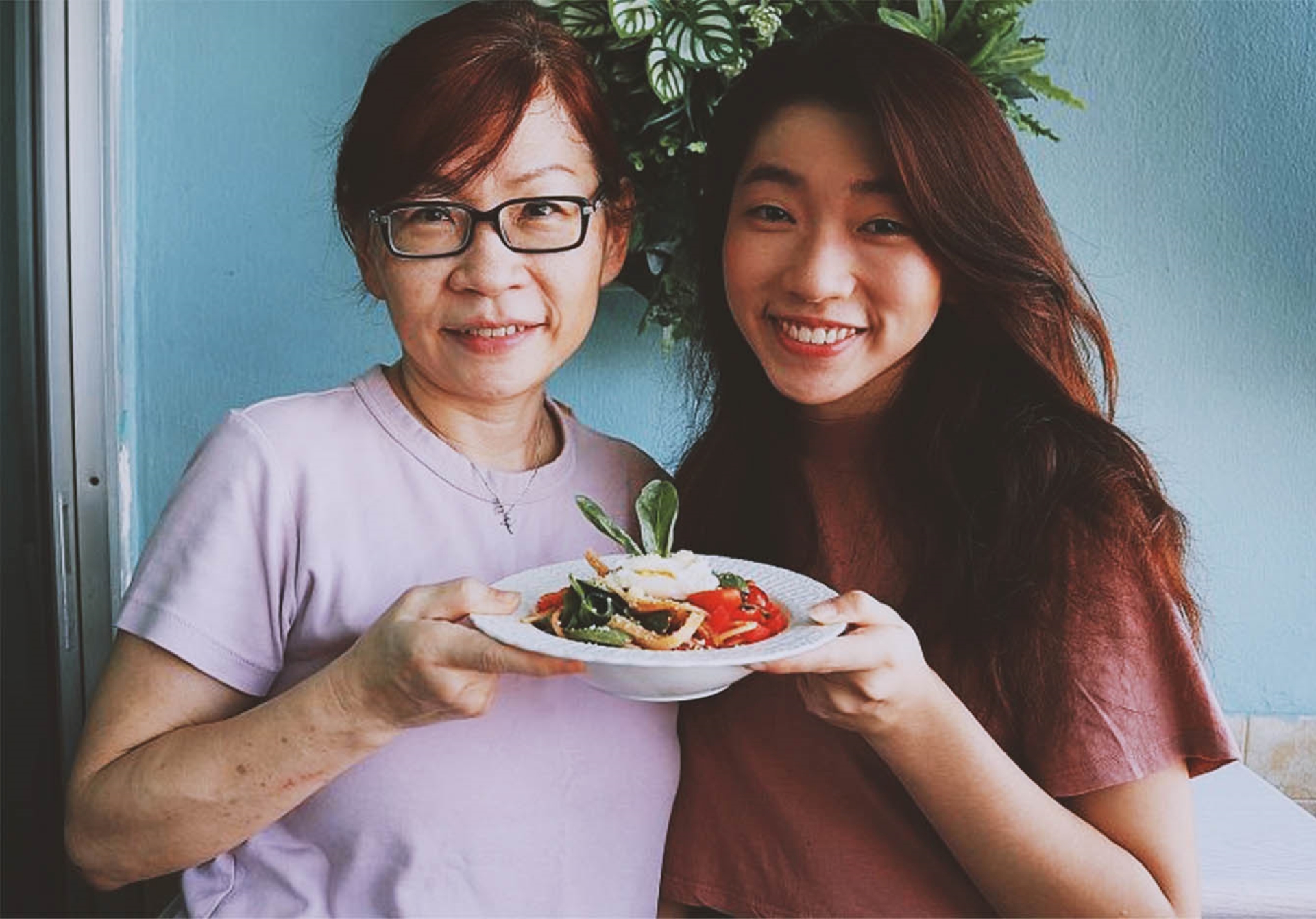
Fresh graduate Andreia Ko, who became a vegetarian in February, convinced her family, including her mother, Mrs Shirlyn Ko, 54, to commit to a week of vegetarian meals, during which they prepared dishes such as vegetarian pasta. PHOTO: COURTESY OF ANDREIA KO
Thanks to heightened awareness about food sustainability issues, young people are relooking their diets, food sources and purchasing patterns
Since the start of the Covid-19 outbreak, restrictions on dining in at restaurants and shortages in ingredients have changed many young Singaporeans' relationship with food. Some, having no prior experience with cooking, have dipped their toes into the world of culinary arts, while others have taken the chance to change their dietary habits.
Ms Yap Su Chii, 24, for example, was alarmed by photos of empty supermarket shelves during the early stages of the circuit breaker, which started in early April. "Given our reliance on food imports, any disruption to the food supply poses a very real threat to our basic need for food. That's when I started taking the idea of being more self-sufficient seriously," says the founder of the educational start-up Zerowaste Food SG.
She and her family have taken to planting fruit and vegetables, such as papayas, bananas, sweet potatoes and lady's fingers, in their home garden.
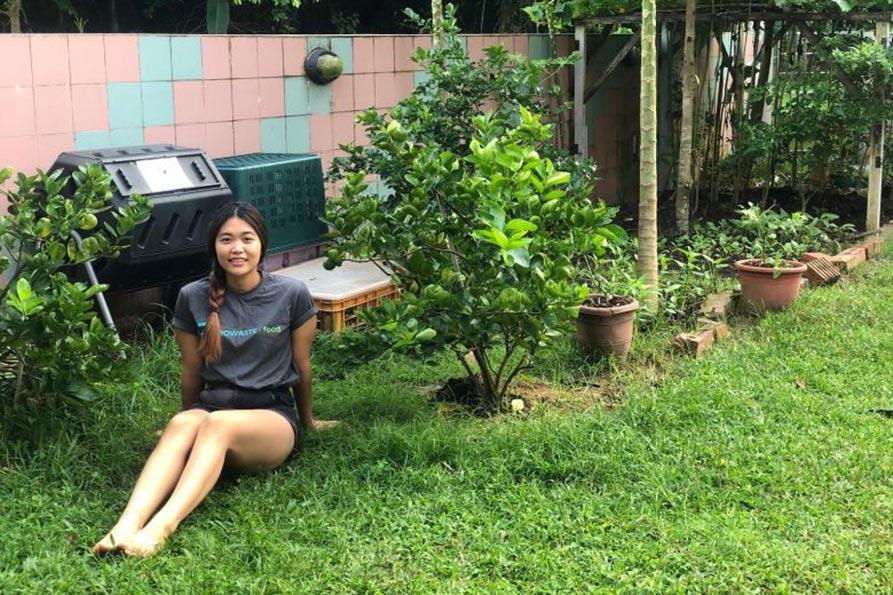
Home-grown fruit and vegetables now make up about 10 per cent of the daily diet of Ms Yap Su Chii (above). PHOTO: YAP SU CHII
Ms Yap, who estimates that 10 per cent of her daily diet is home-grown, says: "I am considered pretty lucky to have a garden space at home where my family can grow some of the food we eat, but it's nowhere near 100 per cent self-sufficient."
Meanwhile, Mr Wafir Hakim, 24, has discovered the secret to an endless supply of spring onions.
The undergraduate says he dislikes making frequent trips to the supermarket, particularly during the Covid-19 period. When a friend sent him a video about propagating spring onions at home, he decided to give it a go. He planted the spring onions he had bought before the circuit breaker and was rewarded with new shoots.
"It took a bit of trial and error, but it finally worked out. I harvest them fortnightly and use them for fried rice," he says.
The pandemic has also made him more aware about food waste and he has tried to use up all the ingredients in his fridge and not let anything go to waste. "I use leftover kitchen scraps like eggshells and fruit skins as fertiliser," he adds.
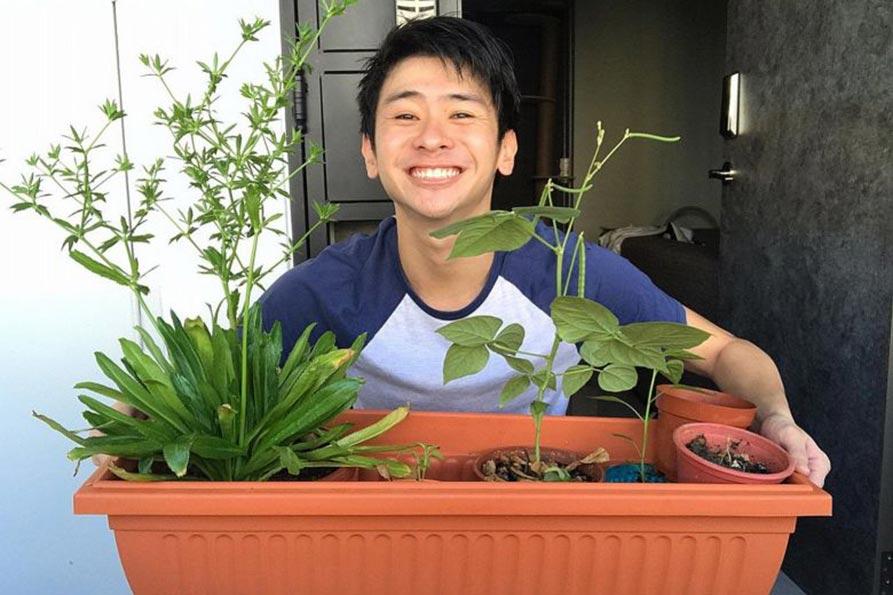
Undergraduate Wafir Hakim (above) has been growing plants such as coriander and chilli to cut down on trips to the supermarket. PHOTO: WAFIR HAKIM
Others, such as Mr Seah Weichen, are taking the chance to embrace a plant-based diet. The 33-year-old, who works at solar energy firm Cleantech Solar, had considered going vegan for environmental reasons, but found such meals near his office in the Central Business District far too expensive.
But since he began working from home last month, he has been cooking his own meals - mostly simple dishes like noodles or chapati with stir-fried vegetables.
"I liked meat but couldn't stand how farm animals were being treated," he says, adding that the coronavirus pandemic is "another reminder of how precious all life is".
Fresh graduate Andreia Ko, who became a vegetarian in February, says: "Many of my friends are also cutting down on meat simply because it is easier to cook vegetables and prepare salads at home."
Earlier this month, the 23-year-old got her family to commit to a week of vegetarian meals, during which they prepared stir-fried udon, vegetable wraps and oat milk. Since then, her parents and elder sister have been limiting themselves to one meal a week with meat.
Undergraduate Wu Lingxin has also been encouraging her parents to join her in eating less meat. On Earth Day on April 22, they made meatless chive pancakes together.
"While at present we face no difficulty purchasing meat, talk of worldwide food shortages, vulnerable supply chains and outbreaks at slaughterhouses suggest we may not be able to take this as a given for long," says the 21-year-old.
Taking on a more active role in the kitchen has also encouraged young adults to source for their groceries more sustainably.
Ms Ng Sze Min, 25, founder of Artwave Studio, used to buy most of her groceries from supermarkets, where the produce is wrapped in plastic. She now buys ingredients like leafy vegetables and dried shrimp from the wet market near her home in Aljunied and takes along her own reusable containers.
Others are buying from retailers like TreeDots and treatsure, which sell surplus groceries ranging from seafood and poultry to fresh produce and packaged snacks.
Financial adviser Gwen Ong, 24, for example, has been getting her seafood from TreeDots' group buy initiative since early last month. Customers join a WhatsApp chat organised by the neighbourhood via TreeDots' Instagram page, where they can place orders for seafood or poultry at wholesale prices.
Ms Ong uses the scallops, marinated mussels and toman fish in stews, pasta and risotto.
"I'm glad I can save the food from being discarded," she says. "I didn't cook much before this because some recipes call for small amounts of unique ingredients, like herbs, and I'd use them only once before they end up rotting in my fridge. Now that my entire family is home all day, I get to cook bigger portions and more frequently so that I don't waste any ingredients that I have."
Sales trader Iris Loh started buying ingredients from treatsure last month when she taught herself to cook, whipping up dishes such as hand-pulled noodles and beef brisket stew.
She has also become more appreciative of the effort that goes into ensuring Singapore's food security.
Another new customer at treatsure, senior business development specialist Lee Shu Shien, 27, buys fresh fruit and vegetables such as spinach, bananas and grapes about once a week and has also started planting herbs like rosemary, basil and mint.
She says: "If I reduce my demand for commercially prepared food and the excess can be better redistributed, maybe fewer people will have to go hungry."
For others, food has become a means to give back to the community. Students Lee Ray Sheng, 20, Zechary Hoe, 22, Sheila Lim, 19, and Ye Anran, 21, from Nanyang Technological University had planned to start a bee hoon stall at the university, but this was thwarted by the circuit breaker measures.
They decided to give the bee hoon to the needy instead.
Since the start of the circuit breaker, the team has been carrying out their project Raydy Gives, in which they cook and deliver up to 1,000 packets of bee hoon daily to recipients such as the elderly.
Ms Lim says providing food is even better than donating money.
"Providing a free meal every day goes an even longer way. Our recipients need not fret over their meals and are assured that every meal is covered. This removes the mental burden they have when it comes to putting food into their stomachs."
This article is produced in partnership with ST Life.
Food waste: should we really be concerned? How much do you know about it? Take this quiz and test your knowledge!
Join us for tips to make your daily life more convenient, especially in ways that contribute to a more sustainable future!




